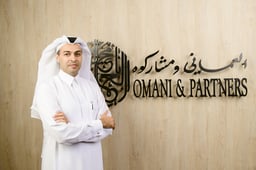Economy
Qatar is one of the wealthiest and most prosperous country in the Gulf Cooperation Council (GCC). With one of the strongest GDPs in the world, Qatar also has the fastest growing economy in the GCC. The economy of Qatar is largely dominated by oil and natural gas revenues, such that it has the world’s third largest gas reserve. Despite the significant contribution oil and gas generates for the economy, Qatar has been expanding and diversifying its economy by encouraging huge development in the sectors of infrastructure, real estate, construction, petrochemicals, steel, cement, fertilizer industries, tourism, financial services and banking. Consequently, Qatar has become a magnet for expatriates and foreign investors. Leading economists have maintained that Qatar’s economy will continue to have high economic growth rate as it forges ahead with huge infrastructure investment despite the slump in oil prices. Economic indicators published by Qatar Central Bank (QCB) have evidenced continued growth. Qatar benefits from both a stable economy and currency, which effectively ensures profitability for foreign investors. Qatar’s location in the Middle East also makes it an ideal hub for access to African and Asian markets.
The Ministry of Commerce and Industry (‘The Ministry’) is a key regulatory authority in Qatar. It creates commercial policy for both private and public sectors to boost economy of Qatar and trade relations in the international market. The Ministry is the key responsible authority for granting trade licenses and permissions to companies, approving new commercial registrations and approving the registration of trademarks. The Ministry is also responsible for the planning and execution of the State’s general budget, monitoring the Government’s accounts and expenditure, evaluating and implementing taxation policy and coordinating with the Qatar Central Bank with respect to monetary policy. The Ministry is in charge of devising and implementing strategies for economic development as outlined in Qatar’s National Vision of 2030 (QNV 2030). Such practices have included diverting surplus revenues generated from the oil and gas industry into activities for the development of a strong private sector, a result of which has been a competitive and fast-growing financial industry. By regularly launching initiatives to sectors outside the oil and gas industry, the Ministry demonstrates its pledge in diversifying Qatar’s economy.
Business environment
Qatar maintains an exceptional business environment for both local and foreign investors that is cultivated by friendly external and internal factors. The political system of Qatar is an absolute monarchy, with the Emir of Qatar as Head of State and Head of Government. Current Emir of Qatar is His Highness Sheikh Tamim Bin Hamad Bin Khalifa Al Thani. According to Article 1 of the Permanent Constitution of Qatar, Sharia Law is the main source of Qatari legislation. The judiciary is independent from the government and is principally divided into two court systems. The first, civil, commercial and criminal system, and second, the Sharia’a system, which administers Islamic law, including matters pertaining to marriage, divorce, child support, succession and some criminal offences. Qatar benefits from having relatively low political, economic, and business security-related risks, factors which influence inward foreign direct investment. It has one of the lowest levels of corruption in the GCC, hence it was not surprising when Qatar’s attorney general was nominated as head of the International Association of Anti-Corruption Authorities. In the recently published Index of Economic Freedom, Qatar ranked 36 out of 185 countries with a score of 68.6. Factors that were taken into account to determine this score included, but were not limited to, judicial effectiveness, government integrity and investment freedom. As a member of the World Trade Organisation, Qatar benefits from trade agreements which, in effect, complement investment initiatives. Qatar offers several strengths that investors can depend on to set up a successful business: advanced education and healthcare, reliable telecommunications, innovative infrastructure, extensive transport links, low corporate income tax and more.
FIFA World Cup 2022
The ground-breaking event which took place in Qatar and for the first time in a Arab country, contrary to the belief of several, has succeeded in joining the East and West, where we have witnessed the love and coordination between people of different regions of the world; increasing the international focus on Qatar. Achievement of both of these premium objectives have called for a huge construction, property and infrastructure development in the country and financial injections by the local government, and local and foreign investors. The attractiveness of Qatar was raised after winning the bid to host the World Cup and its subsequent success in providing an unforgettable experience. Undoubtedly, this opportunity has created economic benefits across multiple sectors. In fact, development projects in Qatar’s hospitality, tourism and retail sectors will have long-lasting effects.
Limited Liability Company
There are various structures used to engage in business, Law No.11 of 2015 (“Commercial Companies Law”) recognises seven vehicles that can be used in Qatar. The most common structure is the limited liability structure. Many companies adopt this structure due to the shareholders liability only being limited to the money they have spent on the company. Therefore, personal assets such as properties and vehicles cannot be ceased in the event of the company entering into complications and being unable to pay off its debts. Moreover, limited liability companies do not require a minimum share capital as was previously required under the old companies’ law therefore making it much easier for establishment. In light of the issuance of Law No. (1) of 2019 Regulating the Investment of Foreign Capital in Economic Activity (the “Foreign Investment Law”), one of the benefits the legislative has provided foreign investors with is the recent ability to establish a company without the need of having a Qatari partner holding 51% of the share capital. Historically, for companies desiring to incorporate under the Ministry, the Qatari legislator has always mandated for non-Qataris to require a local Qatari partner owning 51% of the company share capital prior to issuing a commercial register in Qatar’s mainland. In light of Qatar's 2030 vision and the successful hosting of the FIFA World Cup 2022 placing Qatar on the world map, the Qatari legislator has consciously endeavored to negate any barriers to entry which foreign investors previously had mainly the requirement to require a local Qatari partner. This historical change came with the backdrop of equally important legislations concerning the labour and social fabric of the Qatari society which was all geared at creating a global business hub attracting and maintaining foreign investment. Although the previous law regulating the investment of foreign capital in the economic sector provided for the exception of having a Qatari partner owning 51% of the share capital, the previous law had limited the fields in which this could be achieved; however, the new law issued in 2019 broadened this scope by rather than limiting the fields in which foreign investors can establish companies of having up to 100% of the shares, it limited the fields in which foreign investors cannot establish 100% owned companies as
Article 2 of the Foreign Investment Law provides:
“Without prejudice to the legislation regulating the practice of non-Qatari businesses and professions, and the provisions of Article (4) of this law, the non-Qatari investor may invest in all economic sectors up to 100% of the capital, as determined by the executive regulations of this law.”
And Article 4 of the Foreign Investment Law provides:
“A foreign investor is prohibited from investing in the following areas:
- Banks and insurance companies, except for those exempted by a decision of the Council of Ministers.
- Commercial agencies.
- Any other fields for which a decision of the Council of Ministers is issued.”
Although the general procedure remains the same, the Foreign Investment Law has placed additional requirements further enhancing the current steps, which can broadly be illustrated as follows:
- Reserving company name at the Ministry;
- Submitttng supporting documents to the Business Development & Investment Promotion Department at the Ministry which include:
- Business Plan;
- Market Analysis;
- Financial Analysis Documents; and
- Operational Analysis.
- Submitting the good conduct certificate and the CV of the partners;
- Completing the Non-Qatari Investment License Application;
- Drafting and submitting the company’s Articles of Association;
- Obtaining approval of the Articles of Association from the Companies Control Department;
- Signing the Articles of Association on at the Ministry of Justice; and
- Submitting application requesting the Issuance of a new Commercial Register.
Moreover, GCC nationals may incorporate 100% owned companies without needing to utilize the Foreign Investment Law. In such cases, the ordinary route will be followed accompanied by a letter to the Commercial Registration and Licenses Department at the Ministry requesting for an exemption.
o Free Zones
In addition to the commercial arrangements stated above, foreign investors can incorporate a company in Qatar’s Free Zones. Free Zones are special economic or trade areas with a separate regime of incorporating a company in which a foreign investor can have 100% ownership, without the requirement of a local sponsor. Companies in Free Zones can benefit from the freedom to trade in foreign currency, subsidized rates on leasing property and tax exemptions. There are currently two such Free Zones in Qatar: the Qatar Financial Centre (QFC) and the Qatar Science and Technology Park (QSTP) and more free economic zones are planned for future development. The QFC caters to professional and financial services companies and firms, and QSTP to technology companies or start-ups that contribute to technology development and training. The strategic location of Free Zones makes them an attractive forum for foreign investors.
OTSP
The QSTP has a special free zone status and is a centre of research and commercial excellence for scientific development and regionally produced intellectual property for both Qatari and international partners. The QSTP promotes the research and commercialization of technology projects and training.
QFC
The QFC was established by the government in 2005 to offer an alternative to local and foreign investors seeking to set up businesses in Qatar through the Companies Law No. 5 of 2002. It was created to set a legal and regulatory system parallel to the Courts system in Qatar. Since its establishment, the QFC has succeeded in a large part in fulfilling its objective of becoming a world class business and financial centre of the highest professional calibre in the region and in the world. It offers a transparent, professional, and first-class regulatory regime and legal system that is based on English common law (most countries in the Middle East base their laws on civil law). The QFC was designed to reflect the English legal system and therefore the QFC courts, laws, procedures, formalities are all conducted in English making it more uncomplicated for companies wishing to establish themselves in the Qatar. Companies have access to an independent judiciary in the form of the Qatar International Court and Dispute Resolution Centre. It should be noted that only few laws apply in the QFC, such as Central Bank Law and criminal laws.
QFC companies are permitted to undertake activities which have been divided into two categories: Financial Services and Non-financial Services. The Financial Services include banking, asset management, insurance/reinsurance, investment advice and investment services, and fiduciary businesses. Non-financial services include, but is not limited to, the business of providing professional services, such as audit, accounting, tax, consulting and legal services, investment grading, and ship broking and shipping agents.
The QFC has also established an independent statutory compliance office for the businesses registered under QFC called the Employment Standards Office. Its main objective is to protect both employers and employees through robust regulations, codes and procedures.
Legal system, laws and regulations
According to Article 1 of the Permanent Constitution of Qatar, Sharia Law is the main source of Qatari legislation. The judiciary is independent from the government and is principally divided into two court systems. The first, civil, commercial and criminal system, and second, the Sharia’a system, which administers Islamic law, including matters pertaining to marriage, divorce, child support, succession and some criminal offences.
Investors should be mindful of laws that shape the way business is conducted in Qatar. The general rule is that 51% of the capital of a business venture is to be owned by Qatari citizens or by entities fully owned by Qatari citizens. However, the Law provides that foreign ownership may be increased from 49% to 100% through a decision passed by the Minister of Commerce and Industry with the exception of the above-stated sectors.
The implementation of new laws and regulation as well as amendments to existing laws that all investors should know about:
Previously under the old foreign investment law, (Law No. (13) of 2000), a foreign company wishing to register under the Ministry of Commerce and Industry was required to have a Qatari partner holding 51% of the share capital as previously mentioned. The recently enacted foreign investment law brings about further flexibility to the law meaning that the requirement for a Qatari partner is no longer needed, with some exceptions. Investors should be aware that Qatar is seeking to become an attractive destination for investors to invest in, therefore investors should expect the law to become more adaptable when regulating foreign investments into Qatar.
Restrictions and considerations
Despite the wide range of benefits in doing business in Qatar, there are some noteworthy constraints and legal formalities which affect the business environment. Even with the numerous initiatives introduced to promote foreign investors’ progress in some areas has been slow. In the recent World Bank rankings for Ease of Doing Business Qatar ranks 108 out of 190 economies. Even with the amendment of existing measures and introduction of new incentives, there are restrictions discourage foreign investors.
Regulatory environment – GCC
Qatar complies with many regulations on tax and customs introduced by the GCC. Investors must consider and assess the implications of recent amendments to VAT regulations and custom duties.
Commercial Leases
The need to establish a regular legal presence may involve the requirement of a registered office. Depending on the nature of the business and location, this could mean costly commercial leases.
Immigration and Employment
Immigration and employment laws constitute a significant concern for new and established entrants to Qatar, both for employers and employees alike. There are a variety of different visas and permits obtainable in Qatar, dependent on the individual’s status.
Non-Qatari workers may not be employed unless they hold a valid work permit. Work permits are obtained from the Department of Labour in the Ministry of Labor after fulfilling various immigration formalities with the Ministry of Interior, including production of a local employment contract and meeting the following conditions:
- The non-availability of a qualified Qatari worker registered in the registers of the Department to carry out the work in respect of which the work permit is applied for;
- The non-Qatari applying for the work permit shall be in possession of a residence permit;
- The non-Qatari national shall be medically fit.
Work visas are issued to private entities, companies, and individual sponsorships, which need to be approved by Ministry of Interior. The fee and collection of visas is taken care of by the sponsor.
Expatriates require a business visa, they are valid for a specified number of days. Passport holders of certain countries can obtain a business visa on arrival. A company or a recognized establishment must submit an application to the Immigration Department. However, the visa is subject to laws concerning entry and residency of foreigners and resolutions taken in that matter.
Law No. (13) of 2018 removed the requirement of an exit permit for employees within their work contract duration. This provision can only apply to 5% of a company’s workforce.
Current opportunities & future prospects
The government of Qatar acknowledges that for successful achievement of QNV 2030 an increased foreign investment is necessary. They continuously aim to provide foreign investors with lucrative incentives and exemptions to make Qatar a more investor friendly, free and liberalized environment. A flexible and relaxed visa process accompanied with no personal income tax has fostered a large foreign workforce. Awarding government projects to foreign investors and the introduction of more legal rights for foreign companies has also been encouraging. In light of the Foreign Investment Law removing the minimum share capital requirement in setting up an LLC, this outlined the government’s intentions to give foreigners the right to enjoy full ownership of their business by 2022.
The government has initiated recent changes which have positively impacted the way business is conducted in Qatar and this has created several advantages for those doing business. The Ministry regularly publishes new initiatives online to inform investors of the opportunities available. At present, Qatar is evidencing a number of other major initiatives and projects. In 2023, 22 new projects totaling US$2.7 billion are expected to be awarded under Qatar's 2050 Transport Plan alone.
Major projects like the following two may be contracted in 2023:
The second phase of the Doha Metro Project include building the Blue Line, an addition to the existing Doha Metro network.
Hamad International Airport and Katara Cultural Village will be connected by the multi-billion dollar Sharq Bridge, a three-part bridge with underwater tunnels connecting them.
FIFA recently lauded the World Cup 2022 infrastructure as being excellent and impressive, praising in particular the power plants' exceptional performance in terms of quality, adaptability, and dependability.
In a formal certificate of appreciation sent to the Qatar General Electricity and Water Corporation (Kahramaa), the world's governing body of football stated that Kahramaa's thorough operations planning, high-quality investments, and extensive infrastructure development for the competition in cooperation with the Supreme Committee for Delivery and Legacy (SC) allowed for timely full readiness.
Years of working together with Kahramaa gave FIFA trust in the event's electrical infrastructure, which led to no observable problems or outages during the tournament and flawless network operation.
With its modern motorways, metro system, universities, Museum of Islamic Art, and spectacular new National Museum of Qatar, Qatar has quickly built its infrastructure, making its city a well-liked tourist destination.
At the FIFA World Cup Qatar 2022, the Lusail Iconic Stadium, which hosted the championship match, the Stadium 974, and the Al Bayt stadium all served as exhibits for architectural wonders.
The incredible 100+ brand-new hotels that have opened in and around the city were also noted by Resonance Consultancy. These include two Waldorf Astoria hotels in addition to the Fairmont and Raffles Doha, which are both located inside the U-shaped Katara Tower.
Taxation
In the World Bank rankings for Ease of Doing Business 2019, Qatar is ranked 3 out of 190 in a specific category of ‘Paying Taxes’. The tax regime of Qatar is regulated under Law No. (24) of 2018 Issuing the Income Tax Law (the “Income Tax Law”). Article 7 of the Income Tax Law provides:
“The taxable income is determined on the basis of the total income arising from all transactions carried out by the taxpayer, after deducting the permissible deductions and losses stipulated in this article.
Allowed deductions mean expenses and costs incurred by the taxpayer, which meet the following conditions:
- It must be necessary to achieve the total income.
- It must have been borne in an actual capacity and supported by documents.
- Not to increase the value of the fixed assets used in the activity.
- It should be related to the tax year.
The taxpayer may deduct the losses incurred during the tax year from the net income for subsequent years.
All of this is in the manner specified by the regulations”
The generally applied corporate tax rate is 10%. However, the law provides for different tax rates in specified cases, such 35% rate applies to oil and gas operations. Taxes are calculated on an annual basis.
Property
In light of Law No. (16) of 2018 Regulating the Ownership and Use of Real Estate by non-foreigners, foreigners can own and usufruct and property in areas based on conditions, limitations, benefits, and procedures issued by a decision of the Council of Ministers based on the proposal of the Committee Regulating the Foreign Ownership and Use of Real Estate and in any case, the right of use granted to the foreign owner upon that person’s death and is transferred to the heirs, unless the parties agree otherwise. The right of usufruct for foreign owners is for 99 years, capable of being renewed.
Owning property is permitted within the following areas:
Area
Zone
West Bay (Legtaifiya)
66
The Pearl
66
Al Khor Resort
74
Al Gassar (administrative area)
60
Al Dafna (administrative area)
61
Al Onaiza (administrative area)
63
Lusail
69
Al Kharayej
69
Fox Hills
69
This has been a substantive increase in which previously, foreigners could only hold property interests in the Pearl, West Bay Lagoon and Al Khor.
In regard to the right of usufruct of foreigners, the following areas are permitted:
Area
Zone
Musheireb
13
Fareej Abdel Aziz
14
New Doha
15
Old Ghanem
16
Old Rifa and Al Hitmi
17
Al Salata
18
Fareej bin Mahmoud
22
Fareej bin Mahmoud
23
Rawdat Al Khail
24
Al Mansoora and Fareej bin Derham
25
Al Najma
26
Umm Ghuwailina
27
Al Khalifat
28
Al Sadd
38
New Al Mirqab and Fareej Al Nasr
39
Airport Area
40
What to know before investing
Politics
Qatar benefits from having a stable and competent government. Investors should familiarise themselves with the ministries in the government that regulate different aspects of their business and take advantage of the incentives available.
Economic growth
The effects of diversification have contributed to a positive growth rate and nurture a business-friendly environment.
Incorporation
Seek specialist advise to determine which business structure is best suited for you.
Property Rights
The strengthening of property rights and interests for non-Qataris has helped to reduce uncertainty and promote foreign investment.
Visa requirements
Always check the government’s Ministry of Interior website to ensure you meet the requirements. The law changes, so it is important to keep up to date.
Culture and Religion
Qatar is a Muslim country that welcomes people from all around the world to live, work and invest in the country. Developing connections based on mutual respect and the understanding of cultural differences serves as a foundation for successful and prosperous business relationships.







